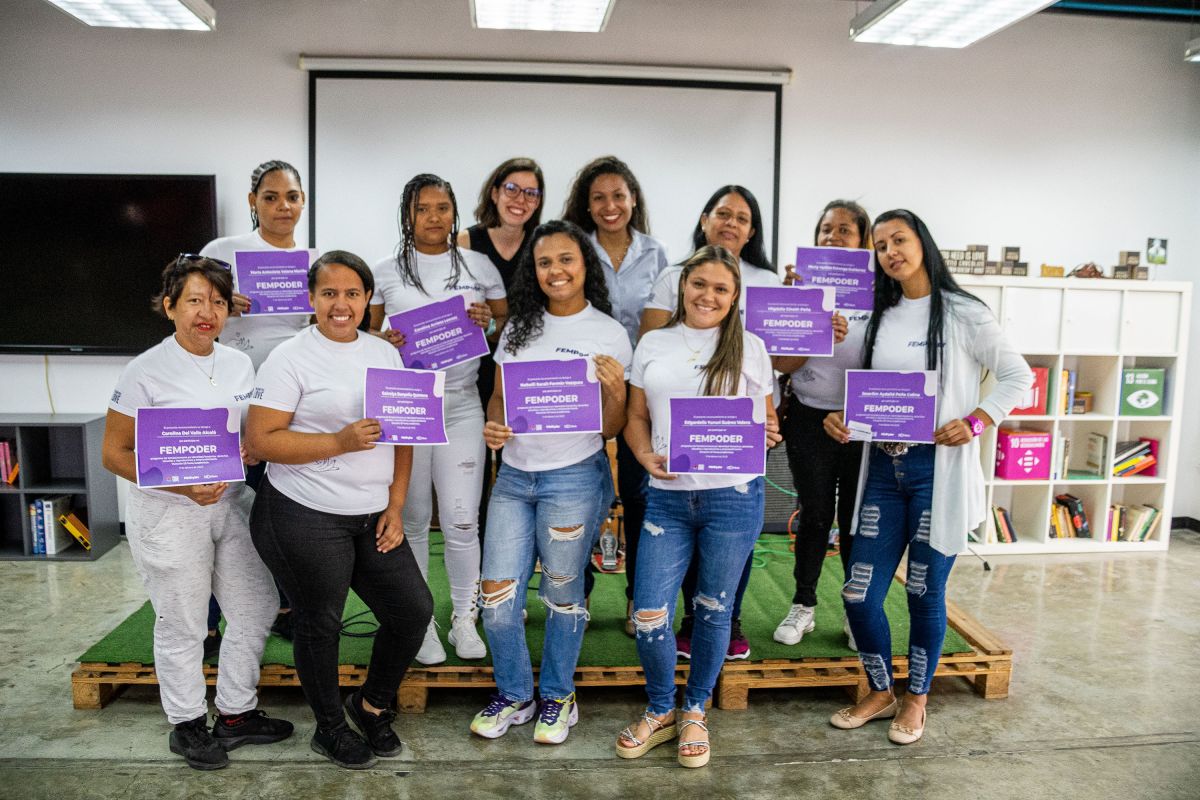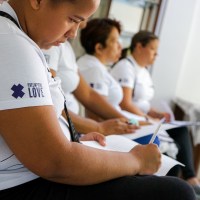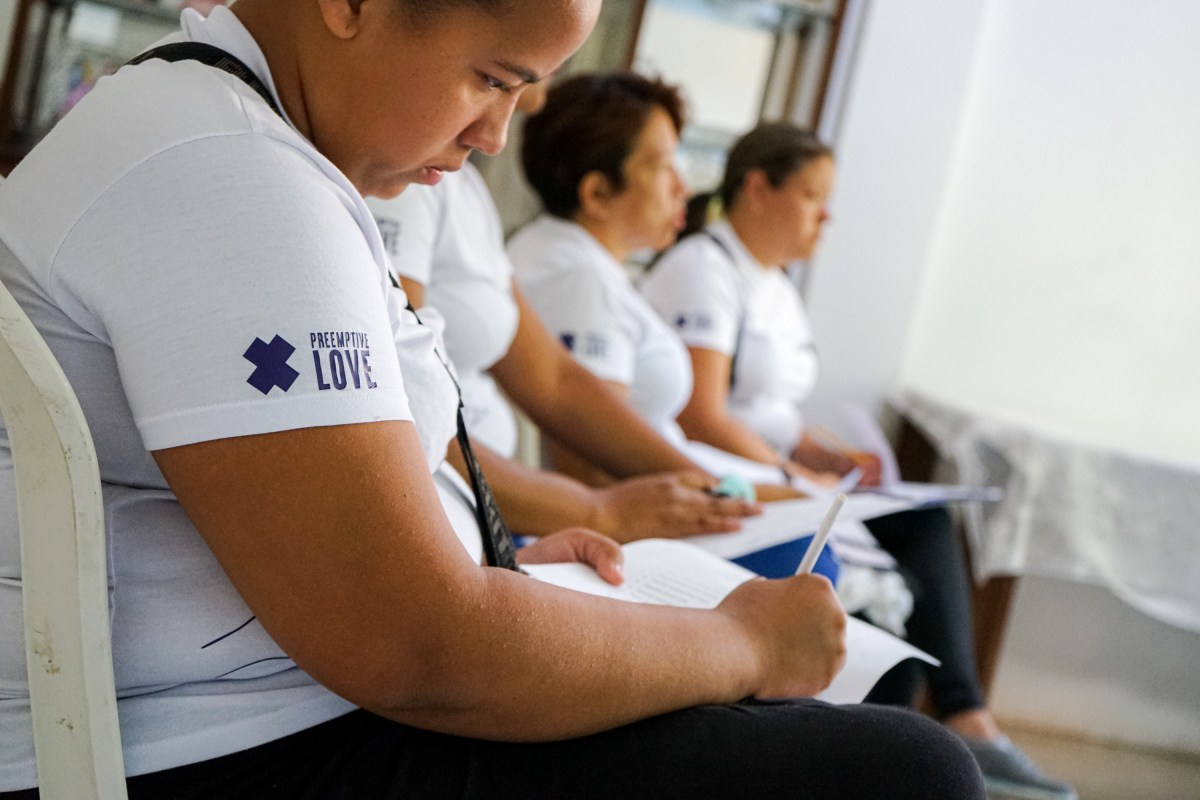The room crackles with a bit of nervous energy. For Maria Teresa, Gaivelys, Migdalia, Edgardelis, Maria, Carolina, Eliabeh, Carolina, Marlin, Naholli, and Jeserlim, today marks the beginning of a new chapter. Understandably, they’re excited, and we’re excited for them.
You’ve been empowering entrepreneurs coming out of conflict to open small businesses for a while. Just last year, you gave over 400 Yazidis, Kurds, and Arabs small business grants so they could create livelihoods. You saw this project’s success in Iraq and had a great idea. Why not help entrepreneurs in Venezuela, where over half the country lives in poverty and the poorest ten percent of people live on $8 per month?
So you did. Starting in the state of Zulia, Venezuela, you invested in entrepreneurs and gave them a year’s worth of one-to-one mentoring as they grew their businesses. Three women and five men started their own businesses between 2021 and 2022, when Venezuela’s hyperinflation was in the triple digits. These enterprises include a cosmetics shop, a sewing shop, tutoring services, a sweets and cakes shop, a barber, a mobile phone accessories and repair shop, a carpentry shop, and a fast food stand. As of today, 7 are still running.
Next, you decided to invest in entrepreneurs in Venezuela’s Capital District. First, you looked for a local partner through the relationships we had cultivated with the community leaders where we do our relief programming. The local community leaders insist that we implement projects promoting self-sufficiency, so they were excited about an entrepreneurial project. We were excited to work with local partners to build up local capacity through knowledge transfers and skills training. In return, our partners shared their knowledge of the local context, which is essential to the success of a project.
By October, we had found and vetted a local partner. First, we trained our trainer on how to coach the business owners. We listened as they told us about their priorities, which resulted in our first programming pivot. Both Preemptive Love and our partner are committed to promoting gender equality. Our partner also added training sessions on preventing gender-based violence and promoting self-worth. In our Capital District job creation cohort, all the entrepreneurs are women.
During the training process, business owners develop their business plans and budgets as they learn about financial literacy, entrepreneurship, leadership, marketing, motivation, and self-worth. The women bonded as a group, with individual women offering to open their homes to their fellow entrepreneurs for the training sessions.
The coach conducting the sessions has also made new relationships. The coach has created a space where participants can call or text the trainer whenever they have questions. As the women open their businesses, the coach will meet with these new business owners for one-to-one, monthly mentoring sessions until the end of the year.

The new cohort has just finished the training phase of the project and are ready to receive their entrepreneurship kits, which are tailored for each owner’s business plan, and their small business grants. These new businesses include a clothing shop, mobile beauty salon services, a grocery store, a pastry shop, and a homemade cleaning products business because cleaning products are unusually expensive in Venezuela. As these businesses get started, we’ll be checking in and letting you know how the owners are doing.
Our program officer in Venezuela reports that the project has shifted the women’s perspectives about themselves. They have more self-confidence now, and it shows in their dreams. They are allowing themselves to have big aspirations because they believe they will accomplish them–the very definition of empowerment.
Thriving livelihoods create stability, giving people one less worry. In Venezuela, individually-owned small businesses are a lifeline for families and communities, incentivizing staying in one’s hometown rather than walking across borders in search of work, as over 7 million Venezuelans have already done. Families and communities can stay together. But the pivot in programming to promote self-worth had an even more powerful impact. These female entrepreneurs have gained self-confidence to complement their resilience, which makes these female entrepreneurs unstoppable.


